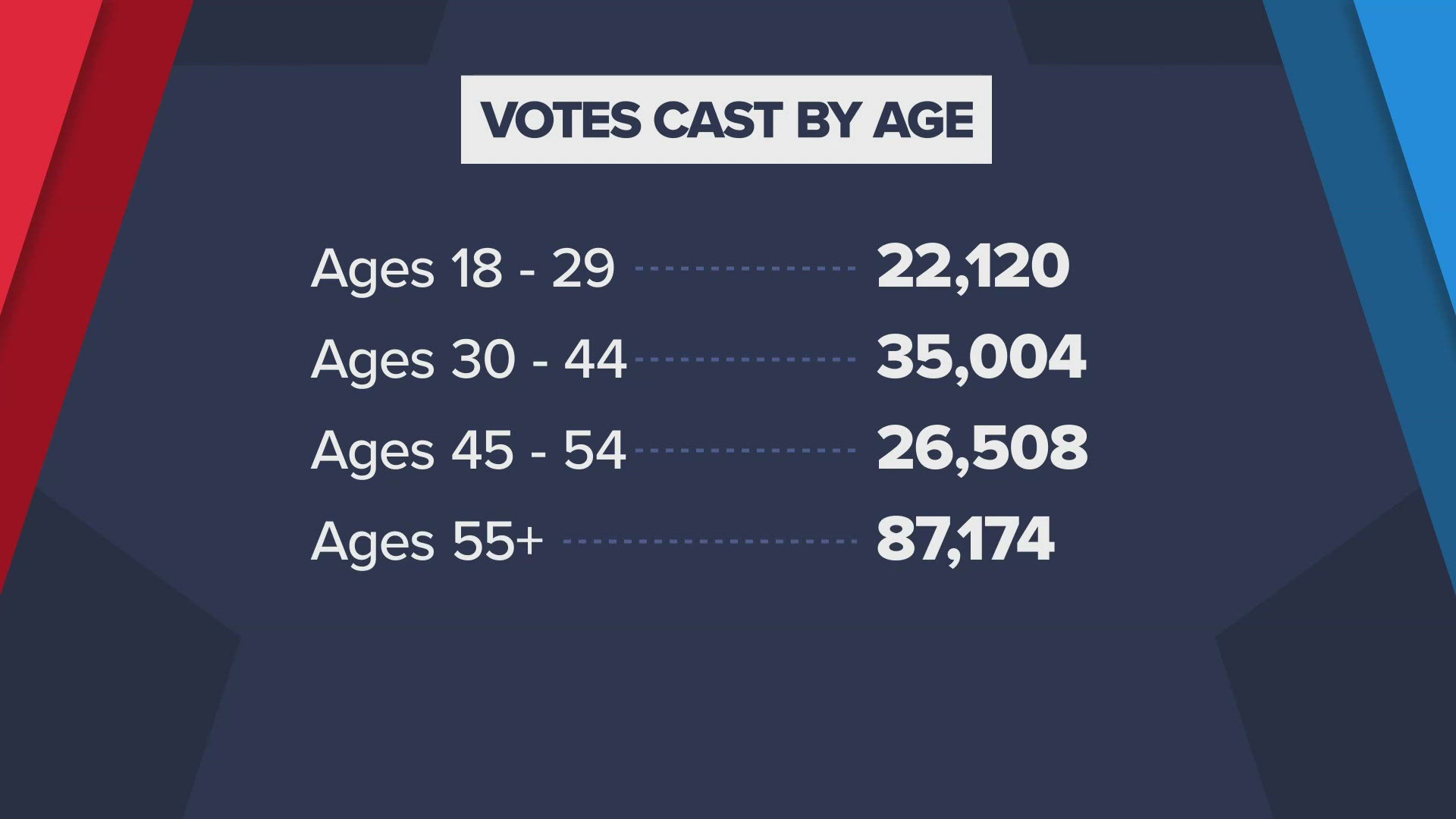NASHVILLE, Tenn. — The 2024 presidential election is bringing voters to the polls in droves. In Tennessee, election leaders said in-person early voting reached a record high by the end of the early voting period.
Tre Hargett, the Tennessee Secretary of State, said election officials collected around 2.1 million in-person early votes. Another 82,253 absentee ballots were cast, resulting in an estimated turnout of around 45.9% across the state.
Although in-person early voting numbers set a new record, Hargett said absentee balloting was down slightly compared to previous years. The dip in absentee balloting resulted in the state failing to set an overall early voting record, Hargett said.
"But, it was great. In fact, I voted on the last day of early voting over here in Middle Tennessee and it took me over an hour to vote last night, and they said it had been that way in the entire early voting period," said Hargett. "When you don't go vote, what you are doing is you're turning the keys of power over the government to those who do."
He also said he hopes the state continues to see strong turnout on Election Day, Nov. 5. Upper East Tennessee counties impacted by Hurricane Helene already had a history of strong turnout, and Hargett said they continued to have strong turnouts despite the storm's impact.
"I know it's probably a pipe dream, but I would love to have a 100% turnout. I would love for every person to want to go vote," he said. "I know it's been a long election cycle. It's been a long election cycle for candidates, it's been a long election cycle for campaigns, for election workers and all Tennesseans."
Although the state saw high early voting numbers, he said numbers were comparatively low in Shelby County and Davidson County. Hargett said those counties saw more absentee ballots cast in 2020, due to the COVID-19 pandemic. If those counties saw similar numbers as 2020, Hargett said the overall numbers would likely also be high.
He also said a transit referendum in Nashville may have caused some voters to stay home during early voting, taking their time to consider the proposal before casting their vote on Election Day.
"I think that maybe some people weren't ready to go vote on that yet, and I think the same thing in Memphis. Memphis has multiple things, even three nonbinding referendums on their ballots," he said. "There can be voter confusion, there can be voter fatigue, and when you add those two things together, people aren't ready to go vote in those two areas."
He also said he believes political vitriol hadn't impacted voters' decisions to go to the polls in Tennessee.
"I'm hearing that from around the state, how nice everybody is being. When they're standing in line and talking to election workers, everyone is being super polite. I really want to make people understand this — despite the fact that sometimes campaigns can get very vitriolic, and the people deeply embedded in those campaigns can get that way, and even their supporters, that's really not who we are as Tennesseans," he said.
Some concerns of voter intimidation flared nationally leading up to the election. The American Civil Liberties Union said examples could include aggressively questioning voters about their citizenship, criminal records or other qualifications. It can also include falsely presenting oneself as an election official or harassing voters.
The ACLU said, "Displaying false or misleading signs about voter fraud and the related criminal penalties" could also qualify as voter intimidation.
Hargett said "there's no reason" for voters to feel intimidated. He also said if they feel intimidated, they should use the feeling as motivation to vote.
"I would say this. If you feel the least bit intimidated, that ought to give you much more reason to stand up and make your voice heard, regardless of what your convictions are. My political bid is no secret, but I believe we are all better off as a state and a nation when we go and make our voice heard," he said.

